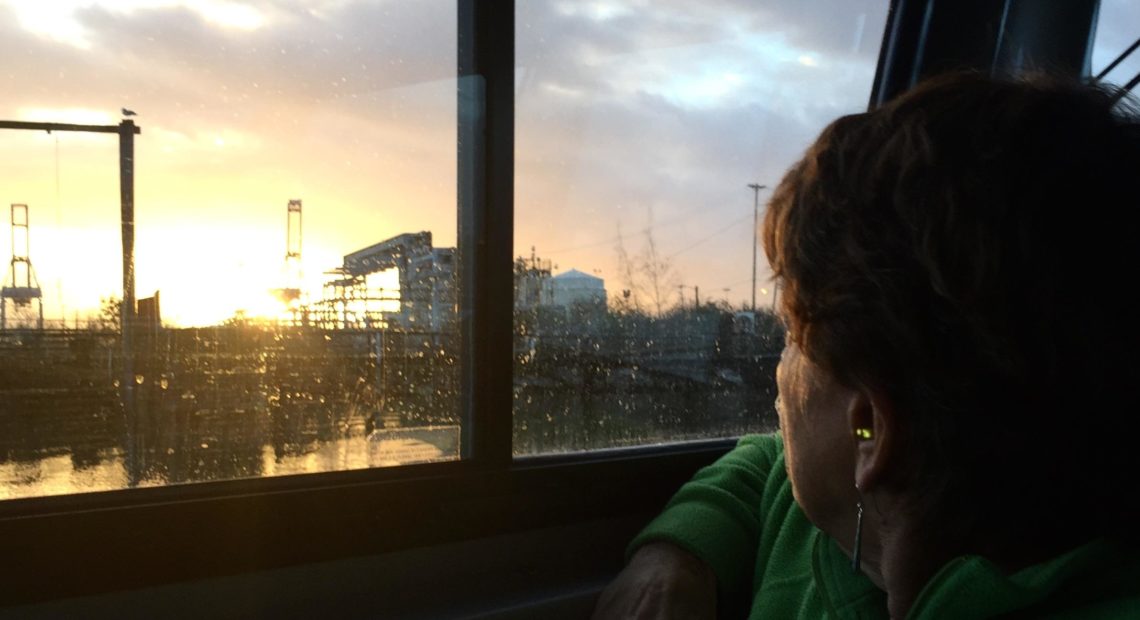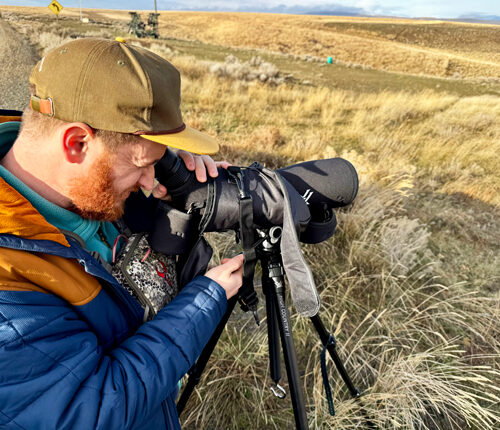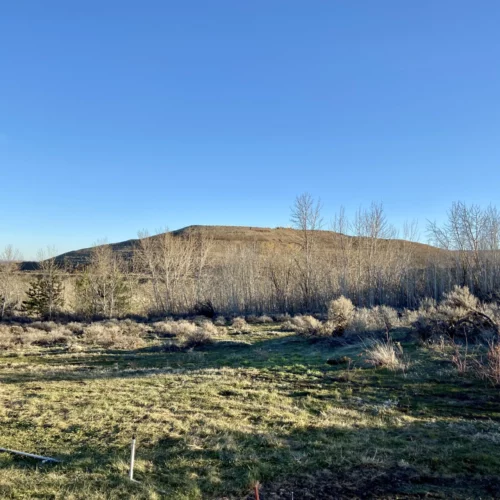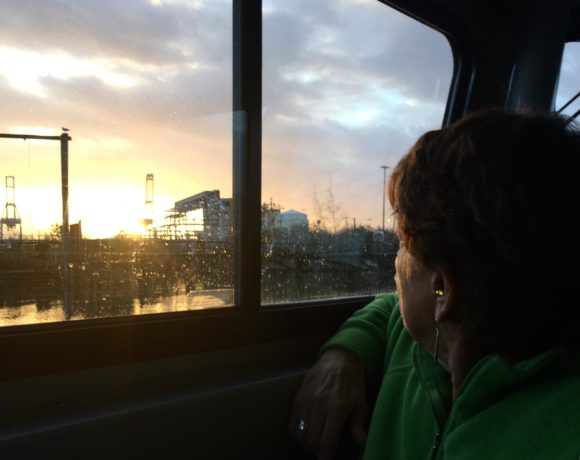
First Phase Of Cleanup Plans For Complicated Pollution On Tacoma’s Commencement Bay Underway
Listen
Tacoma’s Commencement Bay has long been riddled with toxic pollutants. It’s taken decades — and cleanup at some superfund sites is still ongoing. Now, the Washington Department of Ecology is making plans to clean up one of the last and most complicated sources of pollution along the bay: a plant that for decades produced drycleaning solvents and other chemicals that have slowly leached underground.
It’s about a 10-minute boat ride across Commencement Bay to the old Occidental Chemical Corporation site. The former industrial facility sits on the Hylebos Waterway, an inlet off the bay.
The buildings on the site have been demolished, but a toxic plume of chemicals is still under the ground. It’s a plume that accumulated over decades.
“So it’s led to quite a chemical soup at this site,” said Sheri Tonn.
Tonn helped found the advocacy group Citizens for a Healthy Bay. She’s very interested in how this “chemical soup” is going to be cleaned up.
That job will mostly go to the Washington Department of Ecology, and it’s going to be complicated.
Kerry Graber, a cleanup manager with the department, said the old industrial site produced drycleaning solvents and chlorine along with a number of other contaminants for decades.
“All of that contamination has entered groundwater underneath the site and has migrated under the waterway,” Graber said.
It’s taken years for hydrogeologists to understand the plume of underground pollution and to figure out how and where it’s moving. The chemical plume is highly corrosive and overtime has broken down to form another very toxic substance: vinyl chloride.
“Unfortunately it’s a really nasty chemical when it comes to the environment and impact on animals and potential impact on humans. It’s a tough chemical to deal with,” Graber said.
The exact size of the pollution plume is unknown. Estimates vary from 500,000 to 2,000,000 pounds. The uncertainty stems from poor records from the earliest years of the plant’s operation — the facility was built in 1929.
Graber said chemicals in the underground plume have actually been percolating into the waterway.
That concerns Melissa Malott, the executive director of Citizens for a Healthy Bay. Malott worries about recreational boaters, fish and other animals that live by the waterway.
“There’s life happening here. There’s young life happening here,” Malott said.
From the boat, Malott and Sheri Tonn spot several birds and otters near the Occidental Chemical site.
“There’s a kingfisher. We just passed a kingfisher,” Tonn points out as the boat passes by.
They turn the boat around to take a look.
“Now we’ll see if it’s a kingfisher or not after I said that,” Tonn laughs.
Turns out she was right, so they quickly snap a picture.
Chinook and chum salmon also pass through the Hylebos Waterway, which is home to resident fish as well.
Kerry Graber said the Department of Ecology is going to collect more water samples to see how the leaking chemicals might affect animals in and around the waterway.
As a first step the department is asking the Occidental Chemical Corporation to document its estimate of the problem. The department is accepting comments on those documents through Feb. 1. The documents will help develop the overall cleanup plan. Occidental Chemical denied interview requests for this story.
Graber said there are many options for cleaning up the toxic plume. It’s just a matter of what will work with the available technology — that could be anything from extracting and reversing the flow of groundwater to treating the contaminated soil to building an underground wall.
“If we could contain that groundwater and keep it from continuing to migrate into the waterway — that would be a goal or an objective that I would love to see us achieve,” Graber said.
Officials say a draft feasibility study will be completed this spring and it will be into 2018 before the actual cleanup can begin.
Copyright 2016 Northwest News Network
Related Stories:

Canadian leaders hope trade negotiations won’t derail Columbia River Treaty
A view of the Columbia River in British Columbia. The Columbia River Treaty is on “pause” while the Trump administration considers its policy options. However, recent comments by President Donald

Searching for sage grouse: Looking for a chicken-sized needle in south-central WA
Seth Hulett, Audubon Washington’s senior program manager of the Columbia Plateau, searches through his spotting scope for sage grouse. (Credit: Courtney Flatt / NWPB) Listen (Runtime 4:12) Read In south-central

Landfill neighbors worry about PFAs contamination seeping into drinking water
A view of the landfill from Carole Degrave’s property line. (Credit: Courtney Flatt / NWPB) Listen (Runtime 0:54) Read For years, some people who live near a Central Washington landfill
















